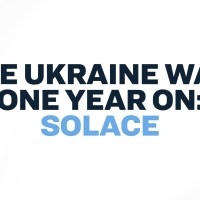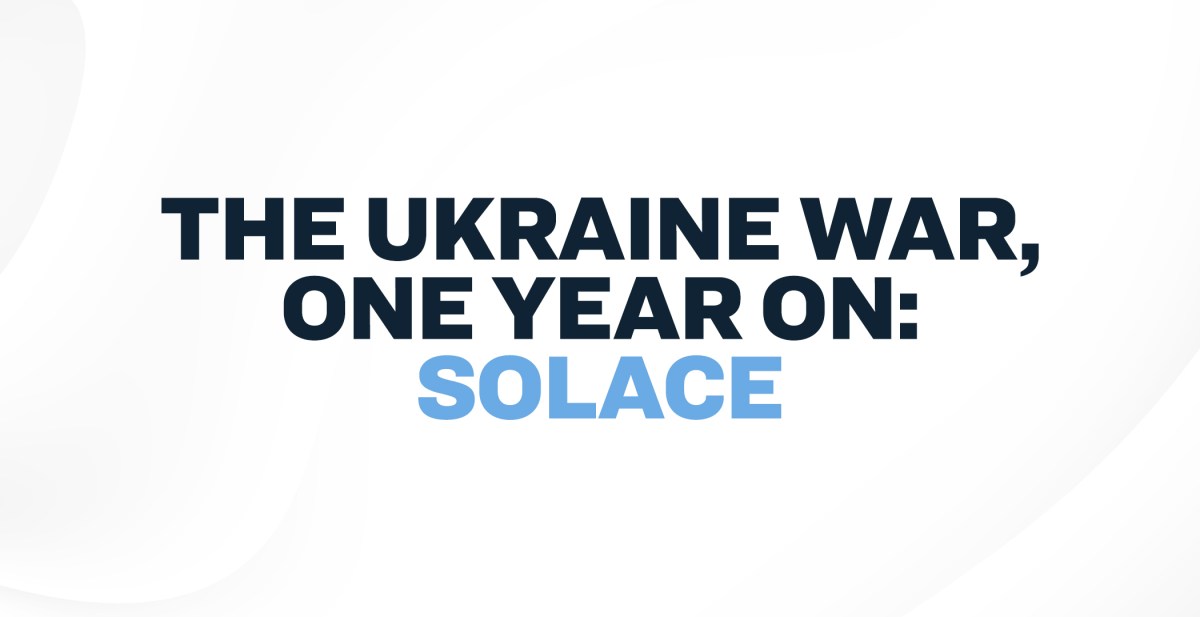Just over a year ago, Larisa’s days were filled with running her two businesses, reading, knitting, and spending time with friends. When explosions woke her on the morning of February 24, 2022, Larisa’s daily routine was shattered. “My first tears were when I saw men in uniforms with guns on my street.” The Ukraine War had begun.
Stay or Go
During the first weeks of the invasion, almost all of Larisa’s friends left Kyiv, but Larisa stayed, taking care of her neighbors’ pets. Alone in her apartment building, she was afraid to go more than a block from home. “It was scary to go into my building from totally empty street because I was afraid that somebody could attack me from nowhere. We were told [by the news] that there were many Russian saboteurs.”
As the war intensified, her friends and family urged her to leave. At first, Larisa refused. She recalled going to the train station where young mothers had been waiting with their children for days to board trains. “It scared me. I couldn’t take someone’s place on the train.”
When she realized the war wouldn’t end soon, Larisa went to the US, where her adult children and brother live. She spent all her time on social media following the war back home. “Those time could be very happy for me. There were a lot of love and care around me, but all my thoughts and worries were in Ukraine.” By summer, fighting in Kyiv had abated as Russia concentrated its military efforts to the south and east. Like others, Larisa decided to return to Ukraine. “There were so many women and children who returned. Buses to Ukraine departed from the Warsaw bus station every 15-20 minutes.”
Airstrikes
She confides that one of the first questions she and her friends ask when they haven’t seen each other in a while is, “Tell me, do I really look older?” because everyone feels like they have aged ten years. “We often cry. We become very sentimental.”
By October, the war had returned to Kyiv in earnest. The first massive missile attack rocked the city during rush hour on October 10, striking a children’s playground in Shevchenko Park, 600 meters from Larisa’s home. Missile attacks became more regular. “We know that it will be every “7-10-14 days. They kill our people. Our infrastructure [is] destroyed and continues to be destroyed.” Larisa says she and her friends have become afraid of sirens. “I could not say that we have gotten used to living through conflict; rather, we learned how to live. We remember a lot of new rules that make our lives easier and safer.” She says the most important rule is that “when we are planning something, we always remember that the event may not take place due to missile attack.”
Larisa compares being in an airstrike to being in a stupor. “It seems to me that all emotions just turn off. I can’t even call that state as depressed.” During strikes, if she is at home, she sits in a hallway away from any windows and scrolls through social media. She has been in the subway a few times during an air alert. “I have never seen panic. Some people have small folding chairs and rugs. Most of the people are just sitting, buried in their phones and waiting for the end of the alert.”
Only the schools with bomb shelters are open, which makes Larisa indignant. “How many schools in Europe have [a bomb] shelter? Do [European] parents think about them when they choose school for their children?”
Larisa is candid about feeling fear, adding that most people in Ukraine feel it now. “This feeling has become a part of our life. This is not a feeling that paralyzed but that lives in us constantly. We always keep in mind that we are not totally safe.” Larisa notes that she and her friends smile less and aren’t carefree anymore. She confides that one of the first questions she and her friends ask when they haven’t seen each other in a while is, “Tell me, do I really look older?” because everyone feels like they have aged ten years. “We often cry. We become very sentimental.”
Coping Mechanisms
Larisa used to be an avid reader and started reading again about three or four months ago. She quips it is hard to concentrate on a book when she checks the news on social media every fifteen minutes. Knitting no longer holds her attention, nor do movies or series. She reports that her friends feel the same way.
“What really saves us long walks, meeting with friends, and occasionally going to some performances, theaters, and exhibitions.” (Because the streets are poorly lit, she and her friends have become accustomed to wearing light reflective elements on their clothes.) Theaters and museums are open in Kyiv, but sadly not all schools are. Only the schools with bomb shelters are open, which makes Larisa indignant. “How many schools in Europe have [a bomb] shelter? Do [European] parents think about them when they choose school for their children?” If President Putin is not stopped, Larisa believes Russia will “unleash more wars.”
-
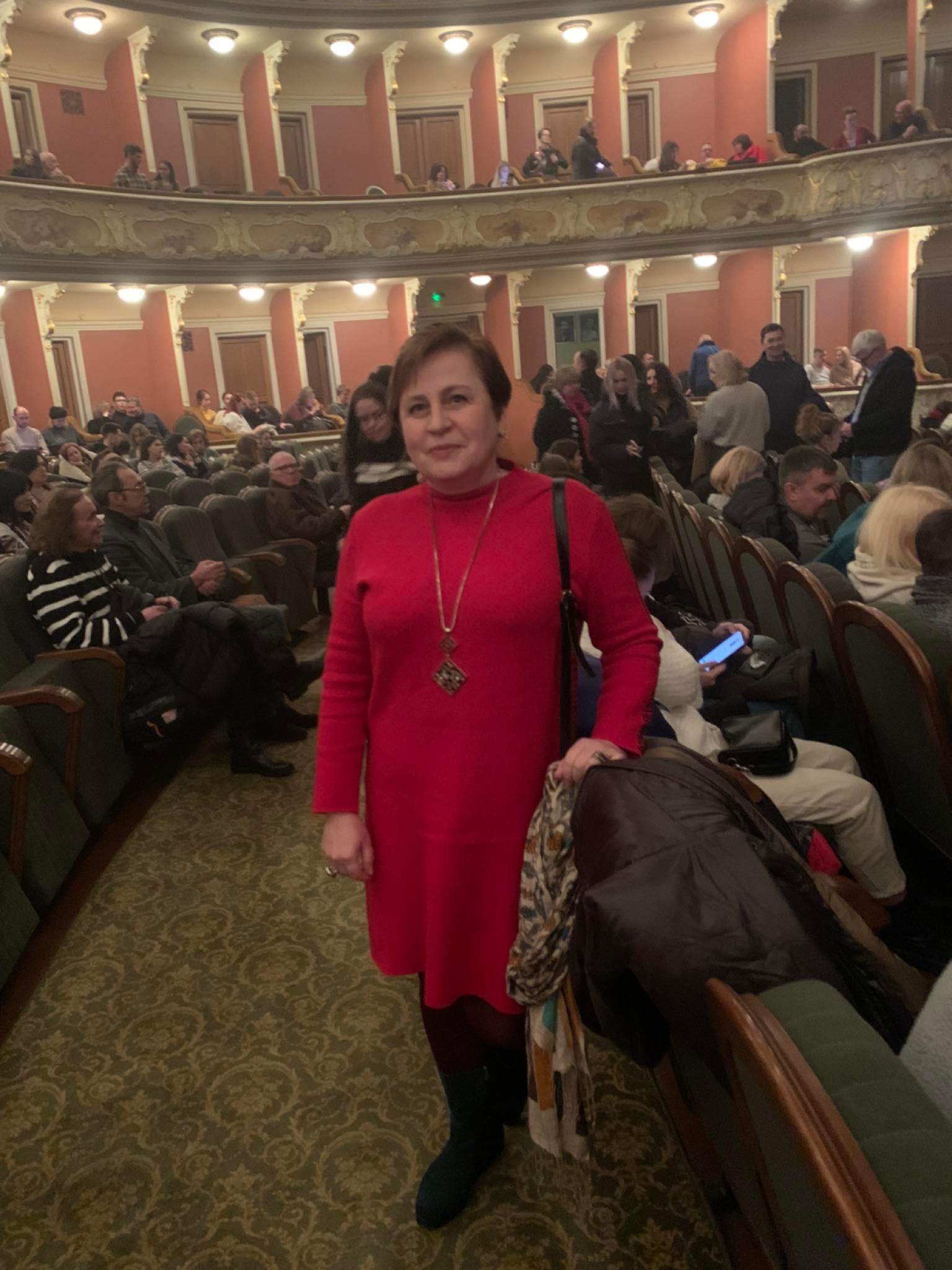
Larisa in the Ivan Franko Theater. Photo by Alla Parfenova for Preemptive Love. -
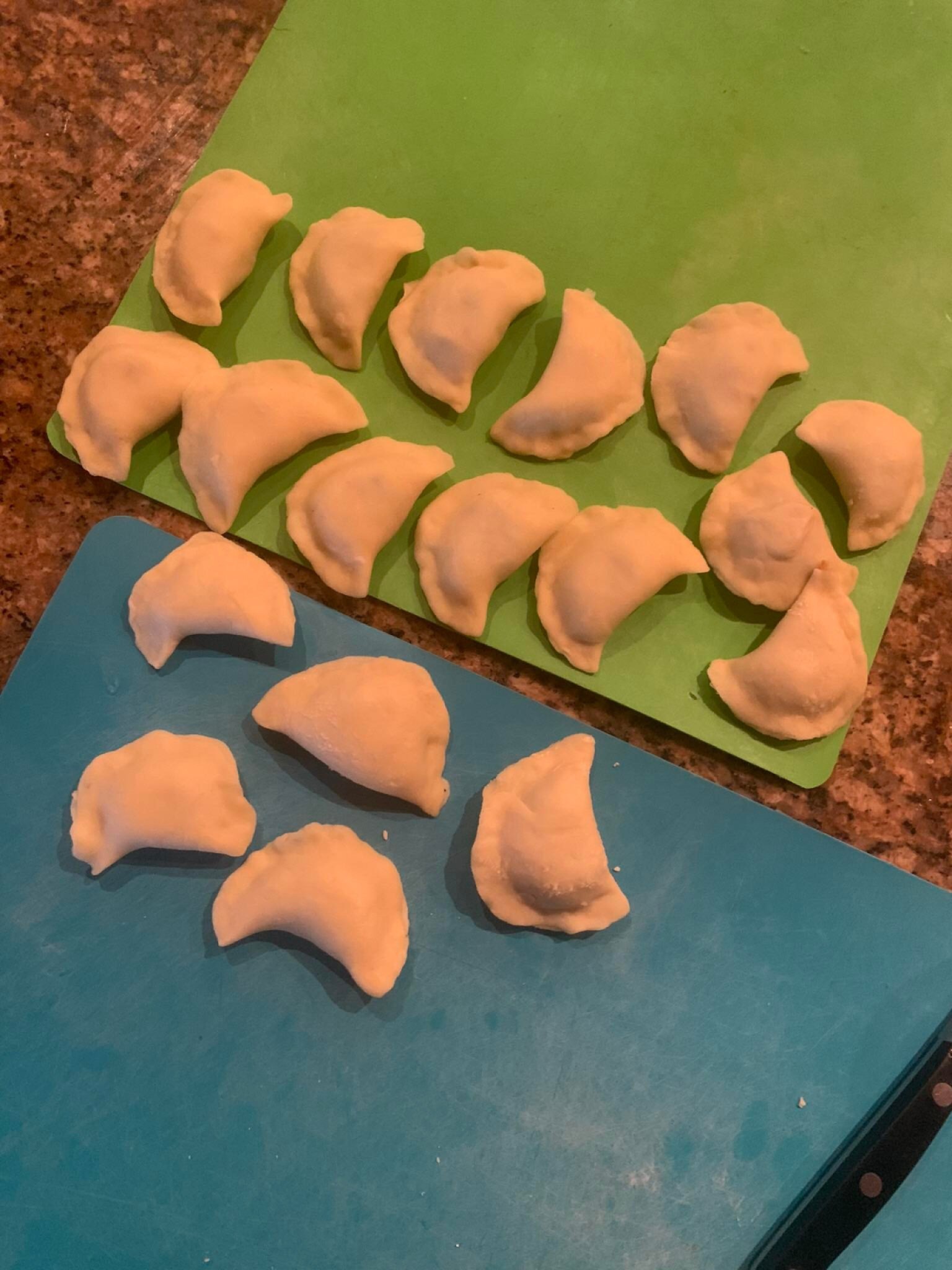 Larisa’s homemade vareniky, pastry stuffed with meat, potato, cottage cheese, and berries. Photo by Larisa Molkova for Preemptive Love.
Larisa’s homemade vareniky, pastry stuffed with meat, potato, cottage cheese, and berries. Photo by Larisa Molkova for Preemptive Love.
Larisa finds solace in community and creativity. She and her friends appreciate and celebrate life by supporting one another and trying “to do something nice for [others].” She cooks a lot, especially for her parents, who have come to live with her in Kyiv. (Her father received a pacemaker at the Kyiv Medical Center during the summer, with bomb shelter signs and sandbag-covered windows as reminders of the ongoing war.) She takes classes in first medical aid, given by volunteers in metro stations and other public venues. “Sometimes, to support my closest ones and not to be broken myself is just enough.”
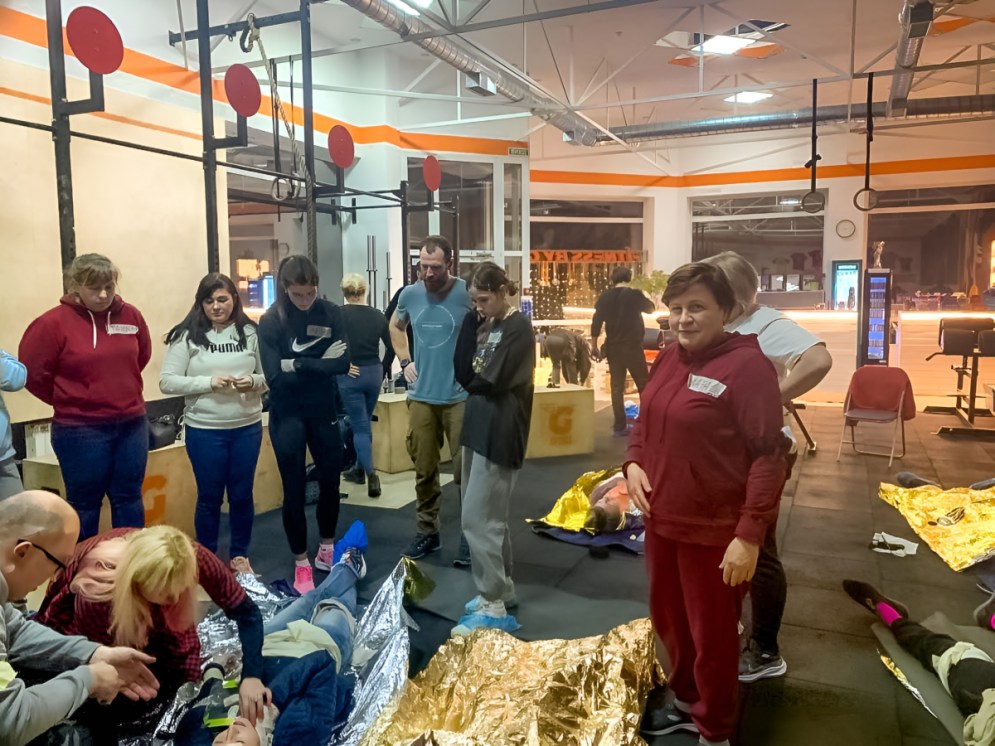
During times of conflict or natural disaster, supporting one another is a reminder of how we belong to each other. If you’d like to support Ukrainians, please consider donating to one of these organizations.
This is part two of a three-part series commemorating the first anniversary of the Ukraine War.

